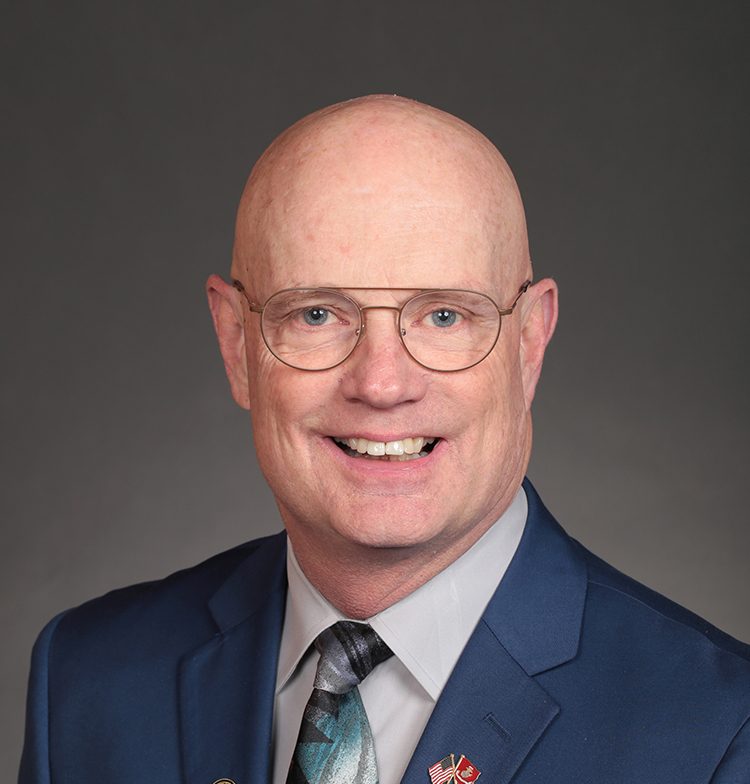In this edition of Freedom Watch I will talk about what is actually in the AEA/Teacher & Support staff pay legislation, HF2612, that was passed by the House on March 21st. Unfortunately, I am reading comments on social media about this legislation that are not true, and those making such comments are either purposefully trying to distort the facts or are confusing the House bill with other AEA bills that the House refused to pass and will not pass.
I have met with numerous superintendents, AEA personnel and parents this year, while also reading thousands of emails, and I have learned that many believe our AEAs are doing an outstanding job, but that improvements can be made. I have also learned that some school districts in fact do not believe their particular AEA is doing a good job, and they want options for their students, such as for example being able to choose a different AEA to deliver services.
House members spent hundreds of hours listening to parents, AEAs, education personnel, and other stakeholders and as a result we passed legislation that we believe will improve the system. Our legislation creates a task force to study how special education services are delivered before making any major policy shifts, while also making small changes to improve the system, that were recommended by many school superintendents. This past week, after the Senate passed reforms very different from what the House passed, House Republicans drew a line in the sand and passed legislation that we believe will absolutely improve not only special education, but all education in Iowa.
This legislation contains huge wins for education that the House fought very hard for this year. I hope to see these policies cross the finish line and be enacted into law.
Increased teacher salaries:
This bill increases the minimum teacher pay to $47,500 in the first year and $50,000 in the second year. This will put Iowa’s minimum teacher salary at fifth highest in the nation.
It also adds a second tier for minimum teacher pay. Under this legislation, teachers who have 12 years of experience can make no less than $60,000 in year one and $62,000 in year two.
Additionally, this legislation allocates $22.3 million for teacher salary supplemental so that schools can increase veteran teacher pay and to help with the pay compaction concerns we have heard from some school districts. This funding will be built into the base going forward, meaning it will increase in subsequent years.
Incentivizing retired teachers to help fill workforce gaps in schools:
This legislation contains a policy that will allow retired teachers to return to the classroom after just one month of retirement without affecting their IPERS benefits. This will incentivize experienced teachers to return, perhaps as substitute teachers, and alleviate some of the shortages facing our schools.
Increased Pay For Paraprofessionals:
This legislation allocates $14 million to increase pay for educational support staff. This was a major priority for me, after hearing from many school superintendents that the best way to improve special education scores was to increase paraprofessional pay so that schools can keep qualified personnel. The Iowa House fought tooth and nail to have this proposal included.
New Money For Schools:
The large increases in pay for teachers and support staff, funding for school safety infrastructure improvements, combined with the increases in Supplemental State Aid, will result in an increase in funding for our public schools of more than 5%.
Task Force To Study Ways To Improve Special Education:
The task force that would convene under this legislation will review the current AEA system and look for areas for improvement. They will look for ways to enhance services, consolidate buildings if it makes sense, provide effective oversight, eliminate redundancies, and ultimately produce better outcomes for students. The members of this task force include AEA personnel and school superintendents, boots on the ground in Iowa who know our system and what can be improved.
Bringing AEA Chief Salaries In Line With Superintendents:
This legislation mandates that the AEA Chief salaries cannot exceed 125% of the average superintendents’ salaries within their region. Currently, the nine chiefs each make around $300,000 annually. Even school superintendents told us this was an issue that needed to be addressed. We are interested in improving the system, not protecting kingdoms, and while we believe the AEA system works well, that does not mean it does not need any reform since being created 50 years ago.
Funding Changes:
Media Services funding is gradually shifted to our school districts over a period of time. This was requested by a number of school superintendents who felt that under the current system they were sometimes paying for services they were not using. This is more of a fee for service model. If a school district wants to continue to use the AEAs for these media services, as many will, they absolutely can. If they want to use the AEA for some media services but do others in house, they can do that too.
For Special Education funding for the AEAs, in the next school year nothing changes. In the 2025 school year 90% of the money will go to the AEAs and 10% will go to the school districts. Schools are still mandated to use the AEAs for special education services, and the AEAs are mandated to provide them. The 10% going to the schools must still be used for special education, and if the schools choose to send the remaining 10% to the AEAs, they can do that. This gives flexibility to the schools for a very small piece of the funding, and the mandate that the AEAs provide a cost list to the schools on the services they provide will bring greater transparency and expose things that need to be improved.
The AEA conversation, and the feedback the House has received from stakeholders, resulted in several different versions and proposals as we worked through the legislative process. It is difficult therefore, for some to be clear on what is in the legislation we advanced this past Thursday in the House. The legislation we passed is vastly different from other proposals, and we believe our initiatives will improve educational outcomes in Iowa, because most of what is in the bill came from the boots on the ground in Iowa.

















